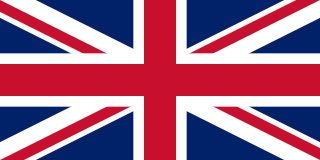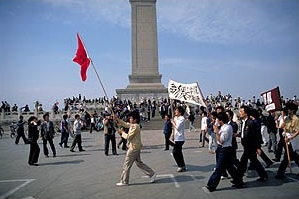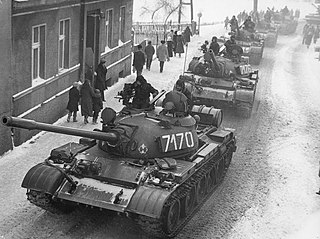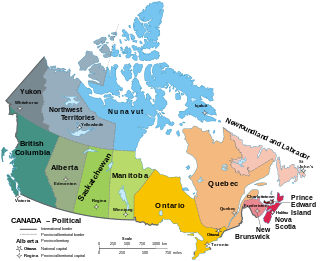 |
|---|
The following is a list of government cabinets of Yugoslavia .
 |
|---|
The following is a list of government cabinets of Yugoslavia .

A government is the system or group of people governing an organized community, generally a state.

Hong Kong is a special administrative region of the People's Republic of China (PRC). With 7.4 million residents of various nationalities in a 1,104-square-kilometre (426 sq mi) territory, Hong Kong is the fourth most densely populated region in the world.

Northern Ireland is a part of the United Kingdom in the north-east of the island of Ireland that is variously described as a country, province or region. Northern Ireland shares an open border to the south and west with the Republic of Ireland. At the 2021 census, its population was 1,903,175, making up around 3% of the UK's population and 27% of the population on the island of Ireland. The Northern Ireland Assembly, established by the Northern Ireland Act 1998, holds responsibility for a range of devolved policy matters, while other areas are reserved for the UK Government. The government of Northern Ireland cooperates with the government of Ireland in several areas under the terms of the Belfast Agreement. The Republic of Ireland also has a consultative role on non-devolved governmental matters through the British–Irish Governmental Conference (BIIG).

The prime minister of the United Kingdom is the head of government of the United Kingdom. The prime minister advises the sovereign on the exercise of much of the royal prerogative, chairs the Cabinet, and selects its ministers. As modern prime ministers hold office by virtue of their ability to command the confidence of the House of Commons, they sit as members of Parliament.

The United Kingdom of Great Britain and Northern Ireland, commonly known as the United Kingdom (UK) or Britain, is a country in Northwestern Europe, off the coast of the continental mainland. It comprises England, Scotland, Wales, and Northern Ireland. The UK includes the island of Great Britain, the north-eastern part of the island of Ireland, and most of the smaller islands within the British Isles, making up a total area of 94,354 square miles (244,376 km2). Northern Ireland shares a land border with the Republic of Ireland; otherwise, the United Kingdom is surrounded by the Atlantic Ocean, the North Sea, the English Channel, the Celtic Sea, and the Irish Sea. The United Kingdom had an estimated population of over 68.2 million people in 2023. The capital and largest city of both England and the United Kingdom is London, whose wider metropolitan area is the largest in Western Europe, with a population of 14.9 million. The cities of Edinburgh, Cardiff, and Belfast are the national capitals of Scotland, Wales, and Northern Ireland, respectively.

The Tiananmen Square protests, known in Chinese as the June Fourth Incident, were student-led demonstrations held in Tiananmen Square in Beijing, China, lasting from 15 April to 4 June 1989. After weeks of unsuccessful attempts between the demonstrators and the Chinese government to find a peaceful resolution, the Chinese government declared martial law on the night of 3 June and deployed troops to occupy the square in what is referred to as the Tiananmen Square massacre. The events are sometimes called the '89 Democracy Movement, the Tiananmen Square Incident, or the Tiananmen uprising.

Martial law is the replacement of civilian government by military rule and the suspension of civilian legal processes for military powers. Martial law can continue for a specified amount of time, or indefinitely, and standard civil liberties may be suspended for as long as martial law continues. Most often, martial law is declared in times of war or emergencies such as civil unrest and natural disasters. Alternatively, martial law may be declared in instances of military coups d'état.

Canada has ten provinces and three territories that are sub-national administrative divisions under the jurisdiction of the Canadian Constitution. In the 1867 Canadian Confederation, three provinces of British North America—New Brunswick, Nova Scotia, and the Province of Canada —united to form a federation, becoming a fully independent country over the next century. Over its history, Canada's international borders have changed several times as it has added territories and provinces, making it the world's second-largest country by area.

The president of the Republic of Korea, also known as the president of Korea, is both the head of state and head of government of the Republic of Korea. The president is elected by citizens of the Republic of Korea and pledges to execute the duties of their office, chief among others "to defend the State, pursue peaceful unification of the homeland." The president leads the State Council, is the chief of the executive branch of the national government and the commander-in-chief of the Republic of Korea Armed Forces.

The Bharatiya Janata Party is a political party in India and one of the two major Indian political parties alongside the Indian National Congress. Since 2014, it has been the ruling political party in India under the incumbent Prime Minister Narendra Modi. The BJP is aligned with right-wing politics and has close ideological and organisational links to the Rashtriya Swayamsevak Sangh (RSS), a far-right paramilitary organisation. Its policies adhere to Hindutva, a Hindu nationalist ideology. As of January 2024, it is the country's biggest political party in terms of representation in the Parliament of India as well as state legislatures.

The federal government of the United States is the common government of the United States, a federal republic located primarily in North America, comprising 50 states, five major self-governing territories, several island possessions, and the federal district of Washington, D.C., where the majority of the federal government is based.

The prime minister of France, officially the prime minister of the French Republic, is the head of government of the French Republic and the leader of its Council of Ministers.

The National Assembly is the lower house of the bicameral French Parliament under the Fifth Republic, the upper house being the Senate. The National Assembly's legislators are known as députés, meaning "delegate" or "envoy" in English; etymologically, it is a cognate of the English word deputy, the standard term for legislators in many parliamentary systems.

Bashar al-Assad is a Syrian politician and military officer who served as the 19th president of Syria from 2000 until the fall of the Assad regime in 2024. As president, Assad was the commander-in-chief of the Syrian Armed Forces and the secretary-general of the Central Command of the Arab Socialist Ba'ath Party. He is the son of Hafez al-Assad, who was the president from 1971 until his death in 2000.

India is a federal union comprising 28 states and 8 union territories, for a total of 36 entities. The states and union territories are further subdivided into 806 districts and smaller administrative divisions.

In the United States, a state is a constituent political entity, of which there are 50. Bound together in a political union, each state holds governmental jurisdiction over a separate and defined geographic territory where it shares its sovereignty with the federal government. Due to this shared sovereignty, Americans are citizens both of the federal republic and of the state in which they reside. State citizenship and residency are flexible, and no government approval is required to move between states, except for persons restricted by certain types of court orders.

The Syrian civil war is an ongoing multi-sided conflict in Syria involving various state-sponsored and non-state actors. In March 2011, popular discontent with the rule of Bashar al-Assad triggered large-scale protests and pro-democracy rallies across Syria, as part of the wider Arab Spring protests in the region. After months of crackdown by the government's security apparatus, various armed rebel groups such as the Free Syrian Army began forming across the country, marking the beginning of the Syrian insurgency. By mid-2012, the insurgency had escalated into a full-blown civil war.

The Syrian opposition is an umbrella term for the groups that opposed the Assad regime in Syria. In July 2011, at the beginning of the Syrian civil war, defectors from the Syrian Arab Armed Forces formed the Free Syrian Army, a name that was later used by several armed factions during the conflict. In November 2012, political groups operating from abroad formed the Syrian National Coalition. In turn, the Coalition formed the Syrian Interim Government which operated first as a government-in-exile and, from 2016, in certain Turkish-occupied zones of Syria. In 2017, the Islamist group Tahrir al-Sham, unaffiliated to the Syrian National Coalition, formed the Syrian Salvation Government in the areas it controlled. Other groups that challenged Bashar al-Assad's rule during the civil war were the Turkish-backed Syrian National Army, the Autonomous Administration of North and East Syria, and the jihadist organization known as the Islamic State.

The Syrian Interim Government (SIG) is an alternative government in Syria, formed by the umbrella opposition group, the National Coalition for Syrian Revolutionary and Opposition Forces. The Syrian Interim Government is a de facto quasi-state that indirectly controls some areas of the country and claims to be the sole legitimate government on behalf of the Syrian opposition in defiance of the Council of Ministers of the Syrian Arab Republic. The interim government's headquarters in Syria are located in the city of Azaz in Aleppo Governorate.